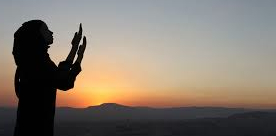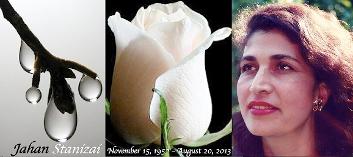
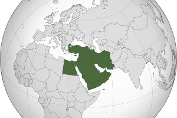
Posted at:

The Middle East, Land Disputes, and Religious History
by Zaman Stanizai
The entire Middle East region that bridges three continents has historically been defined by change: changing people, politics, religious ideas and ideologies. People with power have come and gone, but the land remains and still presents the international community with one of its most challenging conflicts.
For centuries Jerusalem has been an interfaith, intercultural, and international city where different faith communities have converged, comingled, and coexisted in relative peace. This diversity and inclusivity are characterized by such landmarks as the site of King Solomon’s First Temple, the Church of the Holy Sepulcher, and the golden Dome of the Rock in the centuries-old mosaic of Jewish, Christian, Armenian, and Muslim quarters that constitute the city of Jerusalem to this day.
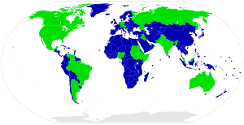
Posted at:

The Allure and Predicaments of Federalism for Developing Countries
By Zaman Stanizai
Norms of international diplomacy recognize ‘nation-states’ as of equal standing. In reality, however, many of these states are not necessarily nation-states, and the disparity in the size of their territory and population, as well as the incomparability of their economic strength, political influence, and military power, speaks loud and clear. It’s hard to compare China with Chad, Nauru with Nigeria, or India with San Marino. With this one-size-fits-all definition of a nation-state, large super-states project way more economic and political power around the world than smaller nations that try to compensate for these disparities by forming larger coalitions, alliances, or federal or confederal unions. Attempts at forming such unions, however, are not always successful. This paper discusses the success of federalism in advanced Western societies contrasting with its failure in developing countries. We will try to identify reasons for such failures in political culture, social dynamics, and global powerplay, and suggest remedial solutions.

Posted: 07/26/2012 12:32 pm
"Americans own a whopping 270 million guns. That is 88.8 guns per 100 people. With only 4 percent of the world population, Americans own 42 percent of the entire 644 million guns in the world. India and China with a combined population that is more than seven times that of the U.S. are in distant second and third place with 46 million and 40 million guns respectively."
Is American Gun Culture Compatible With a Modern Civil Society?
Zaman Stanizai
The American gun culture is defined by thehighest rate of gun ownership in the world along with a high rate of gun violence. Americans own a whopping 270 million guns. That is 88.8 guns per 100 people. With only 4 percent of the world population, Americans own 42 percent of the entire 644 million guns in the world. India and China with a combined population that is more than seven times that of the U.S. are in distant second and third place with 46 million and 40 million guns respectively.
According to a recent study 21.7 out of every 100,000 residents of the District of Columbia are killed by guns earning Washington the distinction of the murder capital of the world. The picture is equally bleak in many of our Southern states.
The cases of Aurora, Virginia Tech, and Columbine are not anomalies, but small blips on the radar screen of gun violence in America. A report by the National Center for Injury Prevention and Control shows that "there were 52,447 deliberate and 23,237 accidental non-fatal gunshot injuries in the United States during 2000."
Posted Articles
Published Articles
Blogs



Terrorism: If Correctly Identified, Can be Cured
It’s Time to Crash the Parties
In Response to a Letter From a Christian Friend
When the Prophet of Peace Meets the Profit of War: An Analysis of the Hubris Syndrome in Governance
Obama's Last Stand on Afghanistan: A Strategy With No Foresight
Islamic Solar Calendar: Eclipsed by Politics and Ideology
Can We Afford Another Failed State in Afghanistan? Beyond the 2014 Drawdown
Afghanistan Exit Strategy: How Bilateral Is the Security Agreement
Egypt and America in Historical Twists of Ironies
Understanding Syria: How a Cold Front Chilled the Damascus Spring
Drone Wars Terrorize Friends Into Enemies
Provocation or Freedom of Expression
Walking in a Muslim's Moccasins: A Different Perspective on the Muslim Protests
Is American Gun Culture Compatible With a Modern Civil Society?
Why Is the European Union Haunted by Its Rejection of Turkey?
Essays

Afghanistan in the Throes of Nation Building and Military Build-up
How We Messed Up a Flourishing Gun-barrel Democracy in Afghanistan
Fighting by the Book Failing by Design: The U.S. Military's Inherent Conflict of Interest with Peace in Afghanistan
We Must Wage War on War to Keep the Republic Public
Downgrading American Democracy: Is There Any Left for the Rest of Us?
Disowning ‘Otherness' in Norway's Nightmare and Europe's Long Past of Cultural Intolerance
Silencing the Call of Democracy and Hijacking the Arab Revolution: Hidden Agenda and Secret Alliances Behind the Libyan Crisis
How to Win Peace in Afghanistan For Half the Price of War
Interviews

The Implosions of International Relationships in the Mideast
The Politics of Polarization
An interview with Dr. Zaman Stanizai
In Translation
Audio MP3s

Part I - On Spirituality and Belief Systems
-
Mythosophia -4 - Mythology of Eden
-
Sufism: An Overview of Islamic Mysticism
-
Like A Rainbow
-
Islam and Science: Debunking the Myth of Incompatibility
-
Can We Know God: A Phenomenological Approach to Understanding
Part II - Historical Analysis
-
Islam Between Conformity and Modernity
-
Identifying with Layers of Islamic Identities
-
Revisiting Pivotal Junctures in Islamic History
-
Crisis of Critical Thought in Muslim Societies: The Bidding of Bid’a
Part III - Political Critique - Radio interviews on KPFK Los Angeles
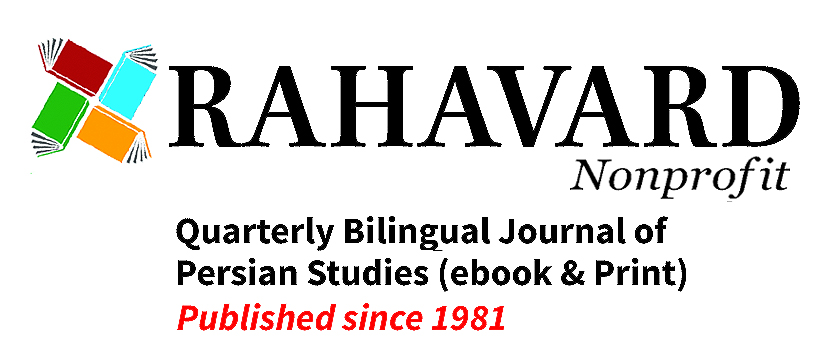

In Khayyam's Tent:A Short Story of a Different Genre
By Zaman Stanizai
With the fall from heaven humanity sank into estrangement, with the death of gods we became spiritually alienated in a strange world, but with the disappearance of the heavens, nothing remains beyond the grasp of our perception. In this continuously shrinking reality, the macrocosm of possibilities within each human being faces even greater challenges to make sense of what our senses cannot grasp.
Contemplation in the depth of these realities had taken me away in the ecstasy of their joyous perplexity as I had unknowingly risen to my feet that carried me wandering beyond the realm of time and place. I met my senses again only when I felt raindrops running down my cheeks pretending to be tears of joy. An early evening light drizzle was pouring forth its omen of mercy.
Poetic Uni-Verse


Re-Versed Revelations (Translations / Renditions)
Mirrored Perspectives (Mystical)
Reflections on Life (Worldly)
Cultural Confluence

Cultural Confluence (Literary Prose)
Archives

-
The State of the World
-
Islamic Lunar Calendar
-
The Debate: The Bilateral Security Agreement
-
Ethnocentric Russian and U.S. Strategies Imperil Afghanistan
-
Before Malala
-
The NSA and the Bush 9/11 Coup
-
The Day America Lost Its Soul: The Case Against Iraq
-
The Bearded Truth
-
Crisis of Critical Thought in Islam (Lecture Notes)
-
The Relevance of Time
-
Laoura Avakiants: Memories of a Peace Advocate
Global Disenchantment
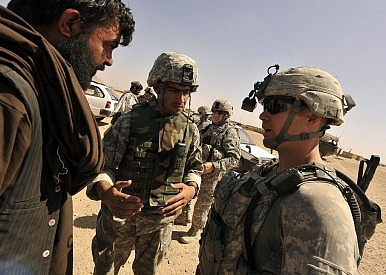
Global Disenchantment
-
State of the World
-
False anti-Semitism charges used to undermine campus movement for Palestinian rights
-
Netanyahu will be remembered for speaking Israel's truth
-
The Bilateral Security Agreement Debate
-
In Case of Zero Option
-
Ethnocentric Russian and U.S. Strategies Imperil Afghanistan
-
The NSA and the Bush 9/11 Coup
-
With Bags of Cash, C.I.A. Seeks Influence in Afghanistan
-
Why the U.S. Paid Karzai's Top Aide
Islamic Feminism
Home Uni-Verse Cultural Confluence Articles Blogs Essays
Interviews Presentations Archives About Us Speaking Requests








